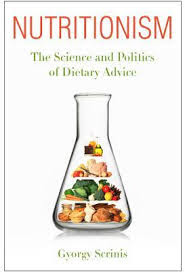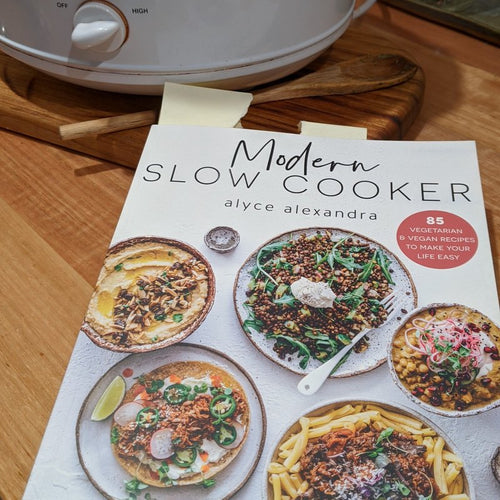Nutritionism - a book review
Does it seem to you that nutritional advice is constantly changing? One moment eggs are bad, and then they're good again? Low carbs or high carbs diet? Do you wonder what you should actually be eating to maintain good health? You're perfectly right, the advice really does keep changing, just like every other aspect of science, when new discoveries or information displace the old theories. One of the common misconceptions about the scientific method is that scientific theories are absolute truths. Unfortunately this is only encouraged by the popular media, and even government organisations, in their attempts to educate the public about the latest scientific findings. This is a particular problem for nutrition science, as unlike some more abstract areas of science, most people do take an interest in the latest nutrition advice and can find the regular changes quite confusing.
In Gyorgy Scinis’ book Nutrisionism - the science and politics of dietary advice, nutrisionism is defined as the "reductive" study of nutrients in isolation, or in small groups, rather than as part of a whole diet or in context as part of food.
"This myth of nutritional precision involves an exaggerated representation of scientists' understanding of the relationships among nutrients, foods and the body. At the same time, the disagreements and uncertainties that exist within the scientific community tend to be concealed from, or misrepresented to, the lay public." Gyorgy Scrinis in Nutritionism - the science and politics of dietary adviceThe book is not an "easy read", it is scholarly in nature and incredibly thorough, with plenty of references and footnotes, but not beyond the lay-nutritionist, just don’t expect to finish it quickly. Gyorgy explains the evolution of the scientific theories behind the nutrition advice, and it becomes quite clear how we have got into this state of conflicting advice. Nutrition science is a relatively new field, even in the early 20th century scientists had not yet identified vitamins and recommended a diet based entirely on protein. Vegetables seemed to be completely unnecessary back then. As nutrition scientists have gradually come to understand more and more about how our bodies metabolise food and what is required firstly for normal growth, and then for not ending up with chronic illnesses, they have regularly changed their theories.
The other problem with nutrition science is the involvement of the food industry, which has strived to manipulate the science, and the official interpretation of the science. Throughout the book Gyorgy refers to the example of margarine, once a poor cousin of butter, then glorified by its vegetable fat content, then vilified for its trans-fat content, but coming out on top again as a "functional food" full of plant sterols to reduce cholesterol. It seems that the food industry is always ready to adjust their formulations to take advantage of the latest science, but adjusting the ingredients in processed foods does not necessarily improve our nutrition.
Gyorgy’s conclusion is that we should consider the quality of the food, defined by the amount of processing and the primary production methods, rather than the individual nutrient content. For example, pure butter from grass-fed organic cows has very little processing as compared to margarine made using a chemical process, from vegetable oil which has also been chemically extracted from seeds, than may also have been grown using synthetic fertilisers and pesticides and GM seeds. I really can’t fault that advice as a strategy for good nutrition.
This is a challenging and rewarding read for anyone interested in the development of nutrition science. It also proposes a sensible alternative to reductionist nutritionism, choosing food based on the quality, with regard to processing and primary production, which I found quite satisfying and much easier to remember than all the conflicting advice.
Here is a taste-tester of Gyorgy’s writing. I was provided with a review copy of the book by the publishers, Allen and Unwin.
This is a challenging and rewarding read for anyone interested in the development of nutrition science. It also proposes a sensible alternative to reductionist nutritionism, choosing food based on the quality, with regard to processing and primary production, which I found quite satisfying and much easier to remember than all the conflicting advice.
Here is a taste-tester of Gyorgy’s writing. I was provided with a review copy of the book by the publishers, Allen and Unwin.
Do you find nutrition advice confusing? What do you think of the advice to eat mostly unprocessed whole foods?

























Leave a comment